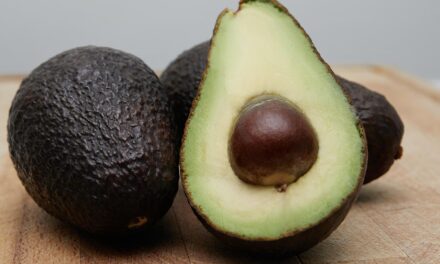Nutritional Profile of Garlic – Garlic may be small in size, but it’s packed with an impressive array of nutrients that contribute to its superfood status. While it’s used in small amounts for flavor, garlic offers significant health benefits due to its rich nutritional profile.
Macronutrients in Garlic
Garlic is low in calories but provides a good source of essential nutrients:
- Calories: 1 clove (around 3 grams) contains roughly 4.5 calories.
- Carbohydrates: 1 gram per clove, making it a low-carb food.
- Protein: Garlic offers a small amount of protein, about 0.2 grams per clove.
- Fat: Virtually fat-free, with less than 0.1 grams per clove.
- Fiber: A small amount of fiber is present, contributing to digestive health.
Vitamins in Garlic
Garlic is a source of several key vitamins that support overall health:
- Vitamin C: Garlic contains about 1% of the daily value per clove. This antioxidant plays a role in boosting immune function, collagen production, and skin health.
- Vitamin B6 (Pyridoxine): A standout nutrient in garlic, providing about 2% of the daily value per clove. Vitamin B6 helps with brain function, energy metabolism, and the production of neurotransmitters.
- Thiamine (Vitamin B1): Garlic contains small amounts of thiamine, which aids in energy production and nervous system function.
Minerals in Garlic
Garlic also offers a variety of essential minerals:
- Manganese: A significant source of manganese, with 1 clove providing about 2% of the daily value. Manganese supports bone health, metabolism, and the body’s antioxidant defenses.
- Selenium: Known for its antioxidant properties, selenium in garlic helps protect cells from oxidative stress and supports thyroid function.
- Calcium: Garlic contains a small amount of calcium, which contributes to bone health.
- Iron: Essential for red blood cell production, garlic offers trace amounts of iron.
- Potassium: This mineral is important for heart health, nerve function, and muscle contraction.
Other Health-Boosting Compounds
In addition to its macronutrients and vitamins, garlic contains bioactive compounds, notably allicin, which is released when garlic is chopped or crushed. Allicin is responsible for many of garlic’s medicinal properties, including its antibacterial, antiviral, and anti-inflammatory effects. It also contributes to heart health by helping to lower cholesterol and blood pressure levels.
Garlic contains approximately 33 sulfur compounds (aliin, allicin, ajoene, allylpropyl disulfide, diallyl trisulfide, sallylcysteine, vinyldithiines, S-allylmercaptocystein, and others), several enzymes (allinase, peroxidases, myrosinase, and others), 17 amino acids (arginine and others), and minerals (selenium, germanium, tellurium and other trace minerals).
Find out more about Garlic as a superfood
How Chia Seeds Support Health
by fab_brands | January 15, 2025 | nutrition, superfoods | 0 Comments
Chia Seeds as a Superfood
by fab_brands | January 15, 2025 | nutrition, superfoods | 0 Comments
Frequently Asked Questions about Dates
by fab_brands | December 1, 2024 | superfoods | 0 Comments
How Dates Support Health
by fab_brands | December 1, 2024 | superfoods | 0 Comments
Nutritional Profile of Dates
by fab_brands | December 1, 2024 | superfoods | 0 Comments
Frequently Asked Questions about Kale
by fab_brands | November 25, 2024 | superfoods | 0 Comments
How Kale Supports Health
by fab_brands | November 25, 2024 | superfoods | 0 Comments
Nutritional Profile of Kale
by fab_brands | November 25, 2024 | superfoods | 0 Comments
Frequently Asked Questions about Eggs
by fab_brands | November 18, 2024 | superfoods | 0 Comments
How Eggs Support Health
by fab_brands | November 18, 2024 | superfoods | 0 Comments





